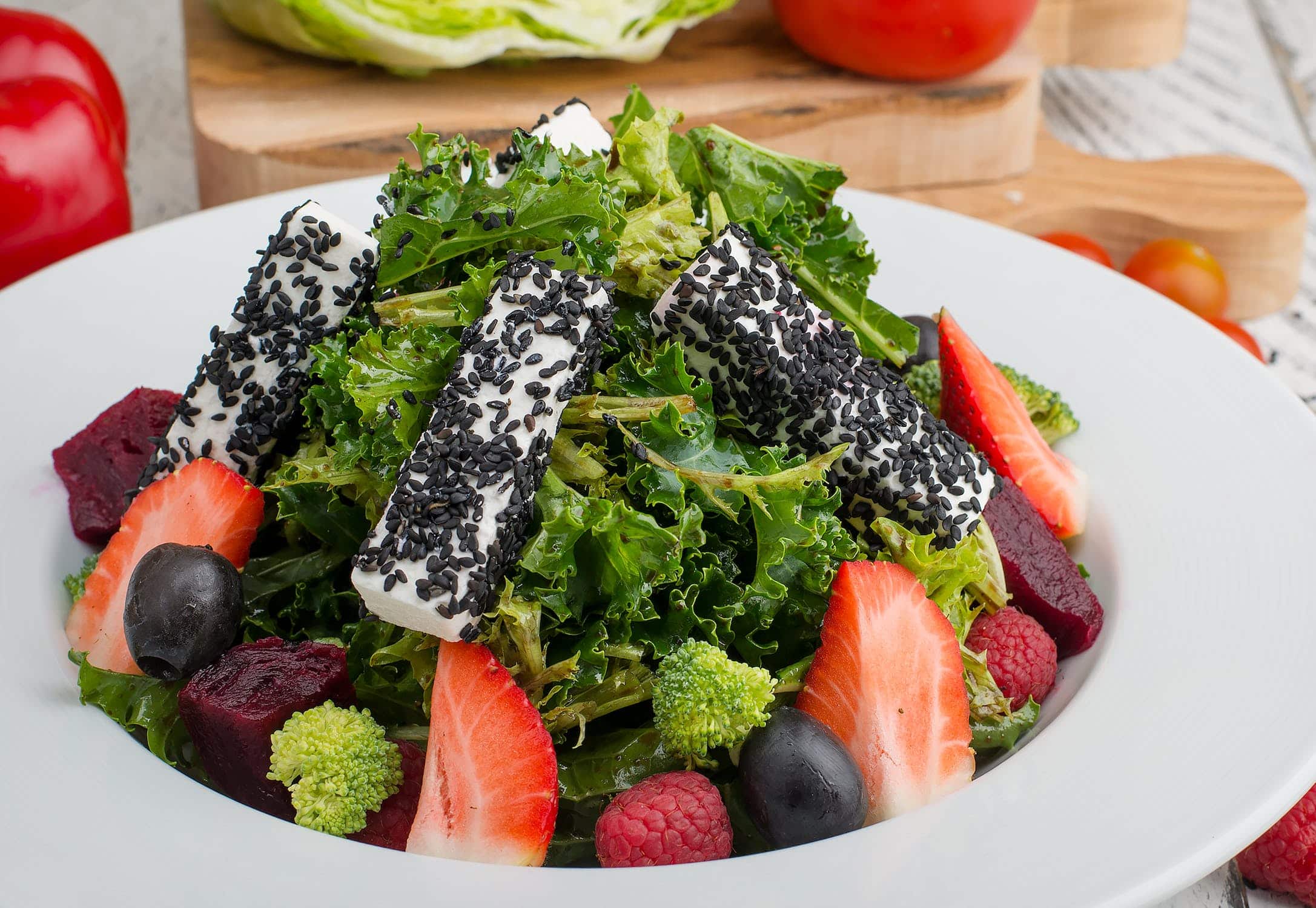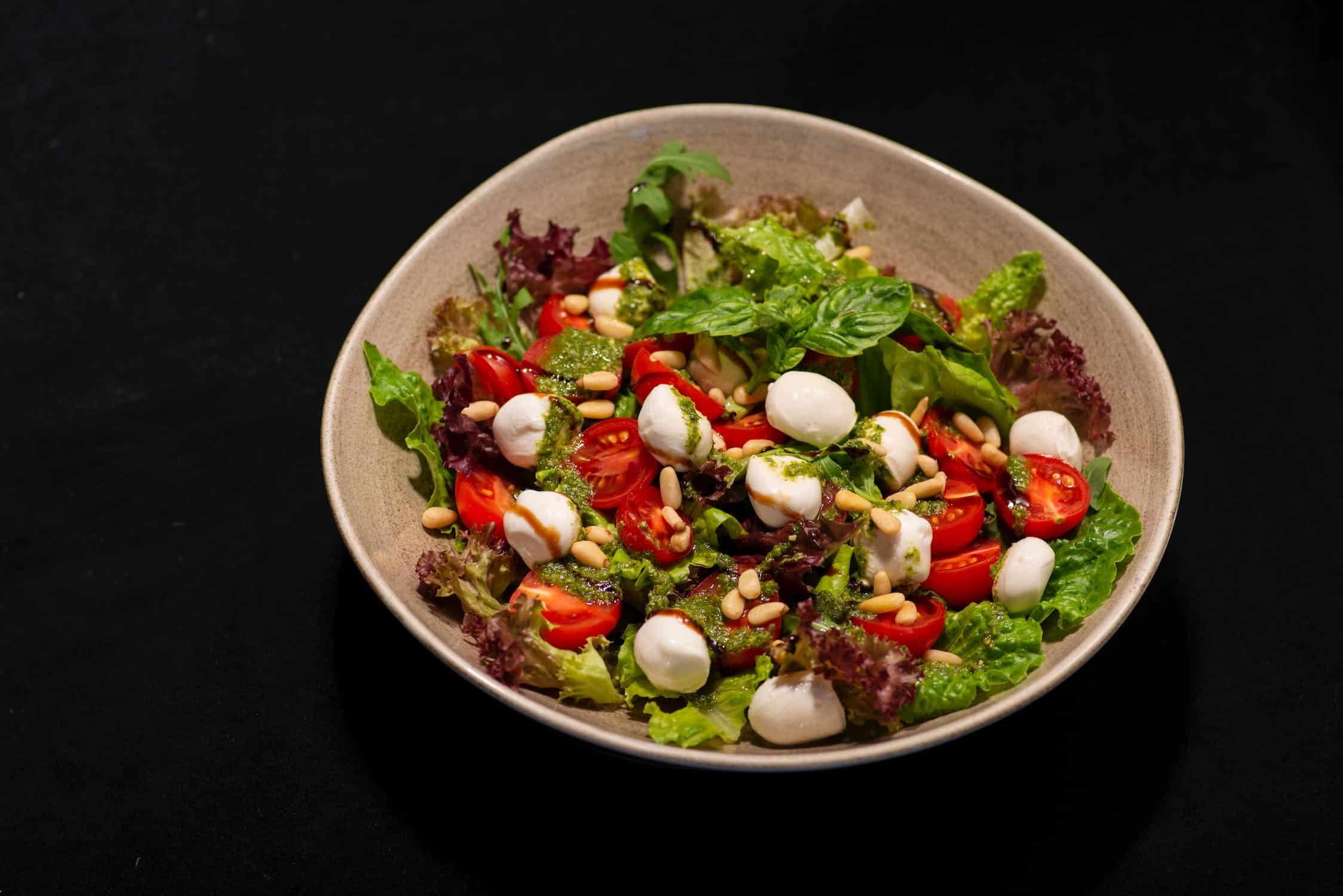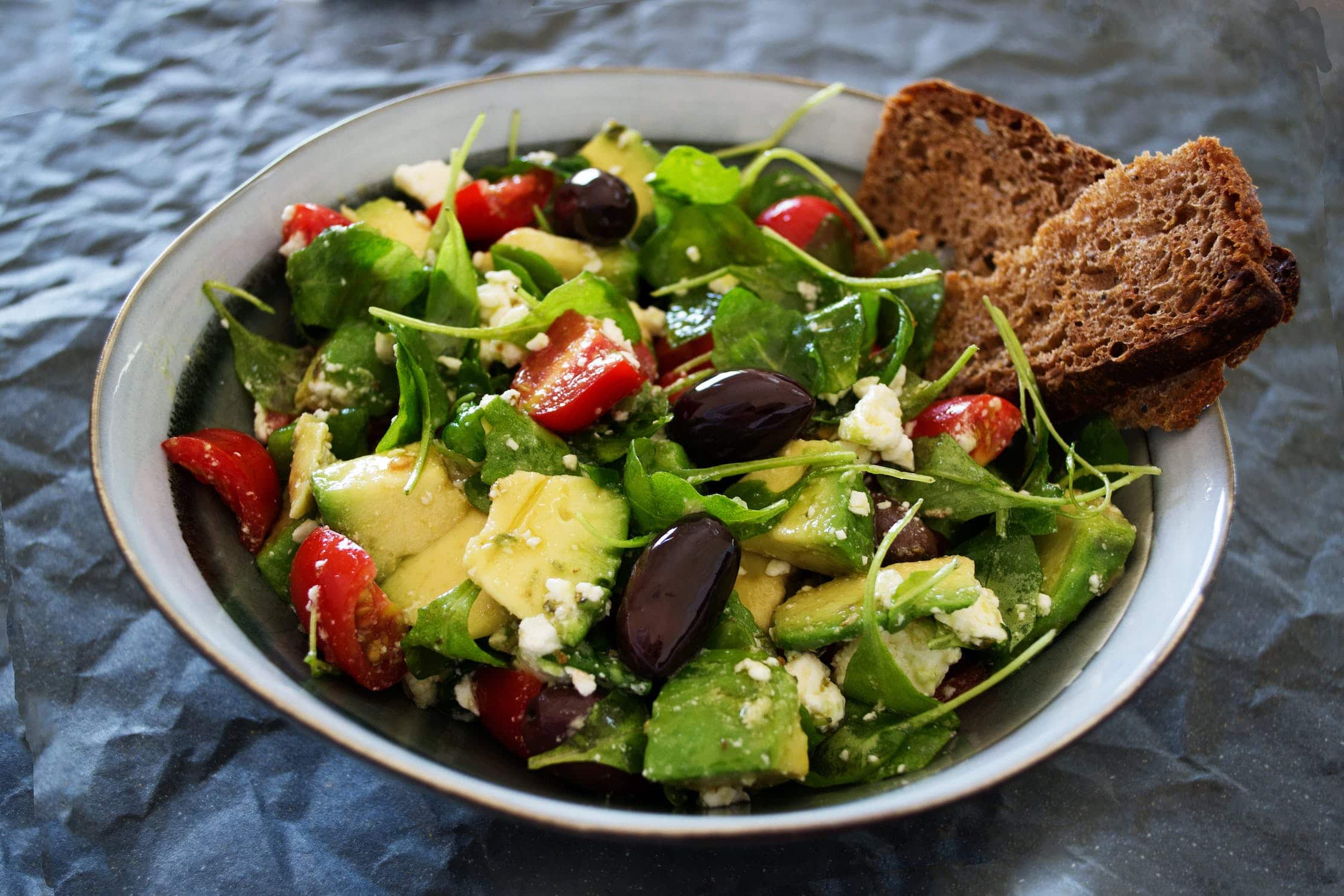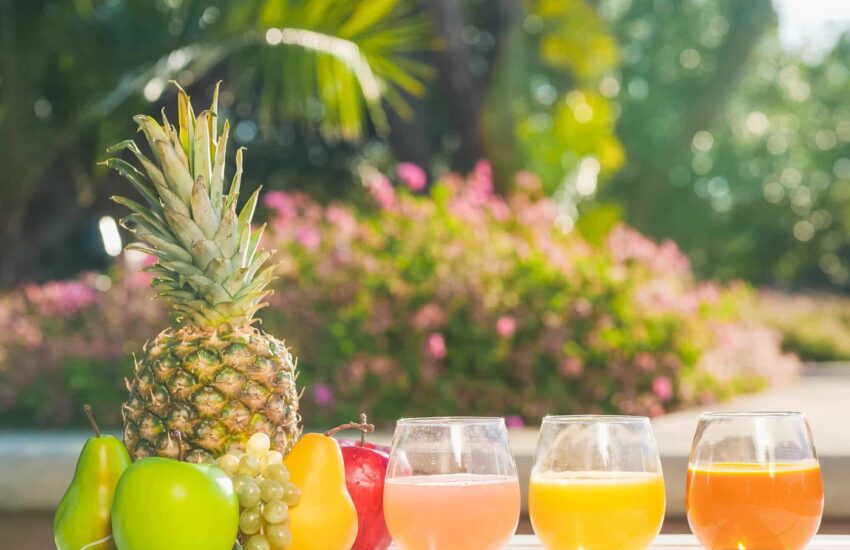The Perfect and Complete Vegan diet for belly fat loss
Belly fat, often referred to as visceral fat, is not just a cosmetic concern; it’s a serious health issue linked to various chronic conditions like heart disease, diabetes, and even certain cancers. If you’ve decided to embark on a journey to shed belly fat and adopt a healthier lifestyle, going vegan can be a powerful strategy.
In this comprehensive guide, we’ll explore a complete Vegan diet for belly fat loss, how it works, foods to include, meal planning tips, vegan belly fat loss recipes and much more. Let’s dive into the world of plant-based weight loss and discover the path to a healthier, slimmer you.

Understanding Belly Fat
In this comprehensive guide, we’ll explore Vegan diet for belly fat loss that will include super vegan foods for weight loss, vegan recipes, how this diet works, meal planning tips, and much more. Let’s dive into the world of vegan weight loss and discover the path to a healthier, slimmer you.
Belly fat, often the bane of fitness enthusiasts and health-conscious individuals, comes in two primary forms: subcutaneous and visceral fat. To embark on a successful journey toward belly fat loss, it’s crucial to comprehend the distinct characteristics of these fat types and recognize the potential health risks they pose.
Subcutaneous Fat
Subcutaneous fat is the more visible of the two, located just beneath the skin. It’s the cushioning layer that covers our muscles and bones, providing insulation and protection. While subcutaneous fat can contribute to body shape and appearance, it’s typically less concerning from a health perspective.
Visceral Fat
Visceral fat, on the other hand, resides deep within the abdominal cavity, surrounding vital organs like the liver, pancreas, and intestines. Unlike subcutaneous fat, visceral fat isn’t just an innocent bystander. It’s metabolically active and can release harmful substances into the bloodstream.
The Health Risks of Excess Visceral Fat
Excess visceral fat is associated with a range of health risks, making it a matter of significant concern:
Increased Risk of Chronic Diseases: Research has linked high levels of visceral fat to an increased risk of chronic diseases, including heart disease, type 2 diabetes, and certain types of cancer.
Insulin Resistance: Visceral fat is a notorious contributor to insulin resistance, a condition where cells become less responsive to insulin, leading to elevated blood sugar levels. This can ultimately result in type 2 diabetes.
Inflammation: Visceral fat is a source of inflammation in the body. It releases inflammatory substances called cytokines, which can promote chronic inflammation, a known driver of various diseases.
Hormonal Imbalance: Excess visceral fat can disrupt the balance of hormones in your body, including those that regulate appetite and metabolism. This hormonal imbalance can lead to increased hunger and weight gain.
Fatty Liver Disease: Visceral fat can contribute to the development of non-alcoholic fatty liver disease (NAFLD), a condition where excess fat accumulates in the liver and impairs its function.
Cardiovascular Risk: High levels of visceral fat are closely associated with cardiovascular risk factors such as high blood pressure, elevated cholesterol levels, and atherosclerosis (hardening of the arteries).

Contributors to Belly Fat
Understanding why excess belly fat accumulates is essential for developing effective strategies to address it. Several factors contribute to the development of belly fat, including:
- Genetics: Genetics can influence where your body tends to store fat. Some individuals may have a genetic predisposition to accumulate fat in the abdominal area.
- Hormones: Hormonal changes, such as those associated with aging, pregnancy, and menopause, can lead to an increase in visceral fat.
- Lifestyle Factors: Sedentary behavior, a diet high in processed foods and sugary beverages, inadequate sleep, and chronic stress are all lifestyle factors that can promote belly fat gain.
- Dietary Choices: Consuming excess calories, particularly from unhealthy fats and sugars, can contribute to the accumulation of both subcutaneous and visceral fat.
- Alcohol Consumption: Excessive alcohol intake can lead to the deposition of fat in the abdominal area, often referred to as a “beer belly.”
The Advantage Vegan diet for belly fat loss
Embracing a vegan lifestyle extends far beyond ethical and environmental considerations; it can also provide distinct advantages when it comes to shedding excess belly fat and achieving a healthier body composition. In this chapter, we’ll delve deeper into these advantages and explore the science behind the vegan approach to weight loss.
Reduced Calorie Density of Plant-Based Foods
One of the primary benefits of a vegan diet for weight loss is the inherently lower calorie density of plant-based foods. Calorie density refers to the number of calories per unit of food volume. Plant-based foods, such as fruits, vegetables, legumes, and whole grains, tend to have lower calorie densities compared to animal-based foods, processed snacks, and sugary treats.
Here’s why this matters
Satiety: Foods with lower calorie density can help you feel full and satisfied while consuming fewer calories. This can lead to reduced overall calorie intake, which is essential for weight loss.
Controlled Portion Sizes: With plant-based meals, you can often eat larger portions without consuming excess calories. This can help prevent overeating and contribute to sustainable weight loss.
Nutrient Density: Vegan foods are typically rich in essential nutrients like vitamins, minerals, and antioxidants. You can nourish your body while managing calorie intake, promoting overall health and well-being.
Impact of Plant-Based Diets on Metabolism and Satiety
Plant-based diets have been shown to positively influence metabolism and promote feelings of satiety. Here’s how:
Improved Insulin Sensitivity: Plant-based diets are associated with improved insulin sensitivity. This means your body can use insulin more effectively to regulate blood sugar levels, reducing the risk of insulin resistance and type 2 diabetes. Balanced blood sugar levels are crucial for preventing excess fat storage, especially in the abdominal area.
Enhanced Metabolic Rate: Some research suggests that plant-based diets may slightly increase your resting metabolic rate (the number of calories your body burns at rest). This can contribute to more efficient calorie expenditure and weight management.
Satiety from Fiber: Vegan diets are typically high in dietary fiber, which promotes a feeling of fullness and satiety. Fiber-rich foods like beans, lentils, whole grains, and vegetables help control appetite and reduce the likelihood of overeating.
Role of Fiber in Promoting Weight Loss & Reducing Belly Fat
Fiber is a superstar nutrient when it comes to weight loss and belly fat reduction. Vegan diets are naturally abundant in fiber-rich foods, and here’s why that’s significant:
Appetite Control: Dietary fiber absorbs water in the digestive tract, expanding and creating a sense of fullness. This can help curb cravings and reduce overall food intake, making it easier to maintain a calorie deficit for weight loss.
Blood Sugar Management: Fiber slows the absorption of glucose (sugar) into the bloodstream. This results in more stable blood sugar levels, preventing the rapid spikes and crashes that can lead to overeating and fat storage, particularly in the abdominal area.
Reduced Visceral Fat: Studies have shown that increased fiber intake is associated with a reduction in visceral fat, the harmful fat that accumulates around vital organs in the abdominal cavity.
How Vegan Diets Can Improve Insulin Sensitivity
Insulin sensitivity is a crucial factor in weight management and the prevention of belly fat accumulation. Vegan diets can positively impact insulin sensitivity through various mechanisms:
Reduced Fat Intake: Vegan diets are naturally low in saturated fats, which can contribute to insulin resistance. By avoiding or limiting animal products, you reduce your intake of these harmful fats.
Healthy Fat Sources: While plant-based diets are lower in saturated fats, they emphasize healthy fat sources like avocados, nuts, seeds, and olive oil. These fats have been linked to improved insulin sensitivity.
Balanced Carbohydrates: Vegan diets tend to include complex carbohydrates from whole foods like fruits, vegetables, and whole grains. These carbohydrates have a more gradual impact on blood sugar, supporting stable insulin levels.
Anti-Inflammatory Properties: Many plant-based foods, such as berries, leafy greens, and spices, have anti-inflammatory properties. Chronic inflammation can contribute to insulin resistance, and a vegan diet can help mitigate this risk.
Let’s explore in detail how to build a balanced vegan plate, highlight specific foods that target belly fat, and provide practical meal planning tips to help you harness the full potential of a vegan diet for weight loss.
Vegan Foods That Target Belly Fat
When it comes to a vegan diet designed for effective belly fat reduction, not all foods are created equal. Certain plant-based foods stand out as powerful allies in your weight loss journey. Here, we’ll delve into these foods, their unique benefits, and the importance of portion control for optimizing results.

1. Leafy Greens and Cruciferous Vegetables
Leafy greens and cruciferous vegetables are staples in a vegan diet and for a good reason—they offer numerous health benefits, including targeted belly fat reduction:
Low in Calories: Leafy greens like spinach, kale, and Swiss chard are low in calories but high in essential nutrients. You can consume generous portions without worrying about excess calorie intake.
Rich in Fiber: These vegetables are fiber-rich, promoting feelings of fullness and aiding in appetite control. Fiber also supports stable blood sugar levels, reducing the risk of belly fat accumulation.
High in Micronutrients: Leafy greens and cruciferous vegetables provide essential vitamins and minerals, including folate, vitamin K, and calcium, which are crucial for overall health.
2. High-Fiber Legumes: Beans, Lentils, and Chickpeas
Legumes, including beans, lentils, and chickpeas, are a cornerstone of plant-based diets. They offer a multitude of advantages for targeting belly fat:
Exceptional Fiber Content: Legumes are exceptionally rich in dietary fiber, promoting satiety and reducing overall calorie intake. This is particularly beneficial for weight loss and belly fat reduction.
Low Glycemic Index: Legumes have a low glycemic index (GI), meaning they have a minimal impact on blood sugar levels. This helps prevent insulin spikes and reduces the risk of fat storage in the abdominal area.
High Protein Content: Protein is essential for maintaining muscle mass during weight loss. Legumes provide a plant-based source of protein, which supports metabolism and contributes to a leaner body composition.
3. Nuts and Seeds Rich in Healthy Fats and Protein
Nuts and seeds, including almonds, walnuts, chia seeds, and flaxseeds, are excellent additions to a vegan diet for belly fat reduction:
Healthy Fats: Nuts and seeds are rich in monounsaturated and polyunsaturated fats, known for their heart-healthy benefits. These fats can help regulate appetite and promote belly fat loss.
Protein Power: In addition to healthy fats, nuts and seeds provide protein, supporting muscle maintenance during weight loss. A higher muscle-to-fat ratio can help with overall fat reduction, including in the abdominal area.
Satiety: The combination of healthy fats and protein in nuts and seeds helps keep you feeling full and satisfied, reducing the temptation to snack on unhealthy options.
4. Foods Containing Monounsaturated Fats: Avocados and Olives
Avocados and olives are delicious sources of monounsaturated fats, making them valuable assets for belly fat reduction:
Monounsaturated Fats: These healthy fats have been linked to improved insulin sensitivity, making it easier for your body to regulate blood sugar levels and reduce the risk of belly fat accumulation.
Satiety and Flavor: Avocados and olives add creaminess and flavor to meals, enhancing the overall eating experience. They also contribute to feelings of fullness, reducing the urge to overeat.
Nutrient Density: These foods are nutrient-dense, offering essential vitamins, minerals, and antioxidants that support overall health and well-being.
Incorporating these vegan foods into your daily meals can be a highly effective strategy for targeting belly fat. Remember that while these foods offer numerous benefits, portion control remains essential for achieving and maintaining a healthy weight. When combined with a well-balanced vegan diet, regular physical activity, and a mindful approach to eating, these foods can empower you on your journey to a slimmer, healthier abdomen. Let’s explore some perfect Vegan diet for belly fat loss recipes.

Vegan Diet for Belly Fat Loss Recipes
Eating to lose belly fat doesn’t mean sacrificing flavor or satisfaction. In this chapter, we’ll explore a collection of delectable vegan recipes that not only promote weight loss but also tantalize your taste buds. These recipes cover various meals and snacks to keep your culinary journey exciting and waistline-friendly.
1. Vegan Smoothie Bowl
Start your day with a refreshing and nutritious vegan smoothie bowl. Packed with fiber, antioxidants, and healthy fats, this breakfast option is sure to kickstart your metabolism and keep you full until lunch.
Ingredients:
- 1 ripe banana
- 1/2 cup frozen berries (e.g., blueberries, raspberries)
- 1/2 cup spinach or kale leaves
- 1/4 cup unsweetened almond milk
- 1 tablespoon chia seeds
- Toppings: sliced strawberries, kiwi, granola, and a sprinkle of chia seeds
Instructions:
- Blend the ripe banana, frozen berries, spinach or kale, and almond milk until smooth.
- Pour the smoothie into a bowl.
- Top with sliced strawberries, kiwi, granola, and a sprinkle of chia seeds for added texture and flavor.
2. Chia Pudding
Chia seeds are a fantastic source of fiber and healthy fats, making them an ideal ingredient for a belly fat-busting breakfast or snack.
Ingredients:
- 3 tablespoons chia seeds
- 1 cup unsweetened almond milk
- 1/2 teaspoon vanilla extract
- Fresh berries and a drizzle of maple syrup for topping
Instructions:
- In a bowl, mix the chia seeds, almond milk, and vanilla extract.
- Stir well to combine, ensuring there are no clumps of chia seeds.
- Cover and refrigerate for at least 2 hours or overnight.
- Before serving, top with fresh berries and a drizzle of maple syrup.
3. Roasted Vegetable Quinoa Bowl
This savory and satisfying quinoa bowl combines the goodness of whole grains and a medley of roasted vegetables.
Ingredients:
- 1 cup cooked quinoa
- Assorted roasted vegetables (e.g., bell peppers, zucchini, cherry tomatoes)
- 1 cup chickpeas, drained and rinsed
- 2 tablespoons tahini dressing (tahini, lemon juice, garlic, salt, and water)
- Fresh herbs (e.g., parsley or cilantro) for garnish
Instructions:
- In a bowl, layer the cooked quinoa, roasted vegetables, and chickpeas.
- Drizzle the tahini dressing over the top.
- Garnish with fresh herbs.

4. Plant-Based Stir-Fry
A vegetable stir-fry is a quick, flavorful, and weight-loss-friendly meal that can be prepared in no time.
Ingredients:
- Assorted vegetables (e.g., broccoli, bell peppers, carrots, snap peas)
- Tofu or tempeh, cubed
- Stir-fry sauce (soy sauce, garlic, ginger, and a touch of maple syrup)
- Cooked brown rice or quinoa
Instructions:
- In a wok or large pan, stir-fry the cubed tofu or tempeh until lightly browned. Set aside.
- In the same pan, stir-fry the assorted vegetables until tender-crisp.
- Add the cooked tofu or tempeh back into the pan and pour the stir-fry sauce over everything.
- Serve over cooked brown rice or quinoa.
5. Vegan Snack
Keep your energy levels up and your belly satisfied with a quick and healthy vegan snack. Here’s a simple yet delicious option:
Ingredients:
- Sliced cucumber and carrot sticks
- Hummus for dipping
Instructions:
- Arrange the sliced cucumber and carrot sticks on a plate.
- Serve with a side of hummus for dipping.
6. Vegan Dessert
Indulge your sweet tooth without guilt with this delightful vegan dessert option.
Ingredients:
- 2 ripe bananas, sliced and frozen
- 1/2 cup unsweetened almond milk
- 1 tablespoon cocoa powder
- 1/2 teaspoon vanilla extract
- Vegan chocolate chips (optional)
Instructions:
- In a blender, combine the frozen banana slices, almond milk, cocoa powder, and vanilla extract.
- Blend until smooth and creamy.
- If desired, top with a sprinkle of vegan chocolate chips.
7. Vegan Energy Bites
Satisfy your hunger and boost your energy with these vegan energy bites—a perfect snack for on-the-go.
Ingredients:
- 1 cup rolled oats
- 1/2 cup almond butter
- 1/4 cup ground flaxseed
- 1/4 cup maple syrup
- 1/4 cup dark chocolate chips
- 1/4 cup chopped nuts (e.g., almonds, walnuts)
Instructions:
- In a bowl, combine the rolled oats, almond butter, ground flaxseed, maple syrup, dark chocolate chips, and chopped nuts.
- Mix until well combined.
- Form the mixture into bite-sized balls and refrigerate until firm.
These seven vegan recipes are not only delicious but also designed to support your belly fat loss goals. Remember that portion control plays a crucial role in achieving and maintaining a healthy weight, so enjoy these recipes mindfully. By incorporating these plant-based options into your diet, you’ll be well on your way to a slimmer waistline while savoring every bite along the way.
The journey to losing belly fat on a vegan diet is not just about shedding pounds; it’s about reclaiming your health, vitality, and confidence. As you embrace a plant-based lifestyle, remember that every meal, every step, and every choice brings you closer to a healthier, leaner you. Besides the vegan diet, you can try some natural weight loss shots at your home. It’s simple but super effective.
With dedication, mindful eating, regular physical activity, and a supportive mindset, you have the power to transform your life and bid farewell to belly fat for good. Your journey is unique, and the destination is worth every effort.
By adopting a vegan diet and making holistic lifestyle changes, you’re not only sculpting your body but also nurturing your overall well-being. It’s time to embrace the vegan advantage and embark on a journey to a healthier, slimmer, and more vibrant you.


